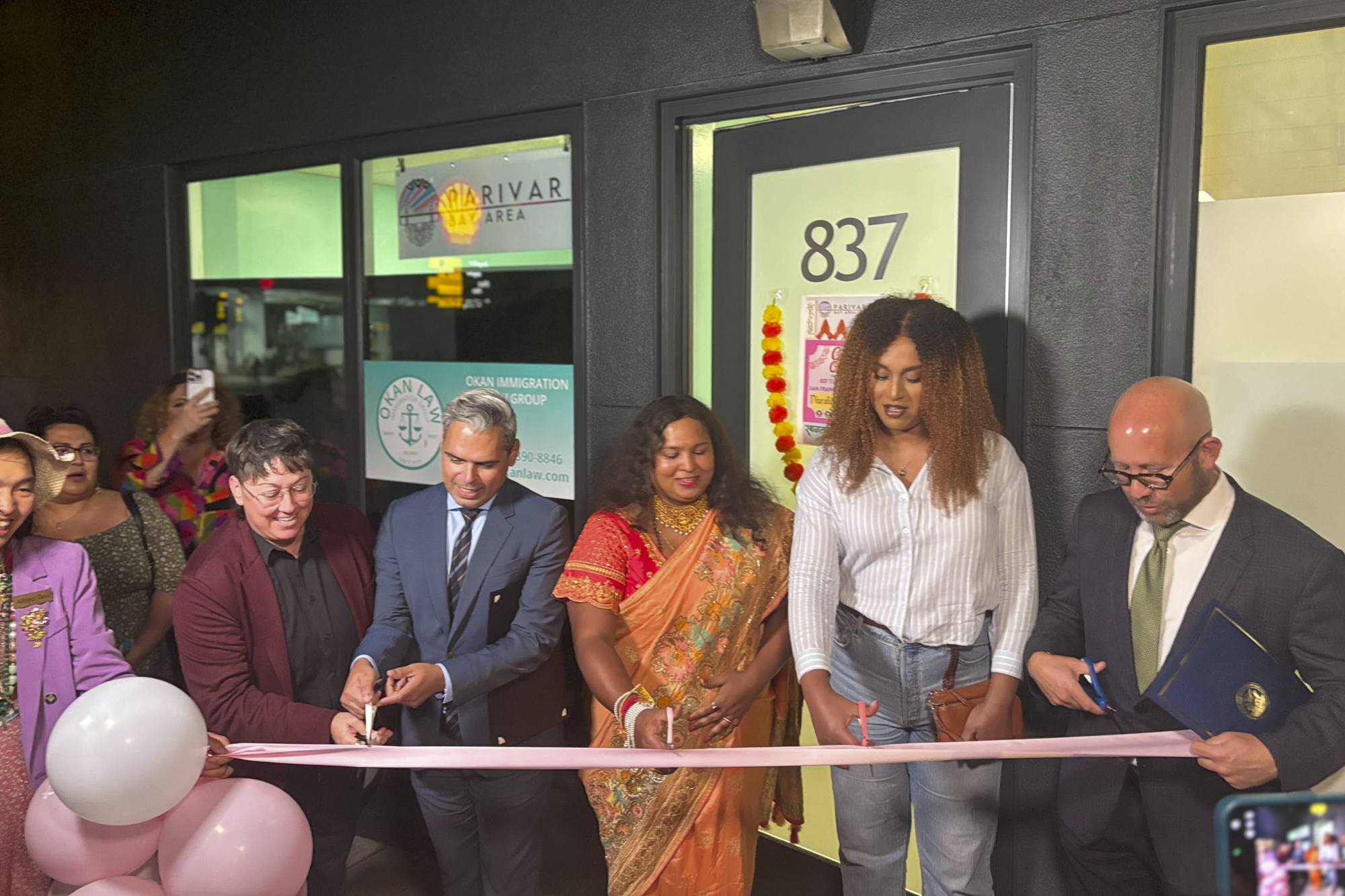It’s why — in the midst of a politically turbulent time — a space like Parivar is “refreshing.”
“It’s knowing that there’s community and support. That’s a really big thing — and making sure that our community knows that there are services out there for us,” Lun said. “Not just doom and gloom, based on what the media and those who are anti-trans [are saying.]”
“The conversation is very, ‘There’s nothing for you. There’s nothing.’ That’s not true … It’s very important for those who are immigrants and trans to know that they have a place and a group that will be of assistance to them.”
The new office is located near downtown San Francisco, close to City Hall, and its grand opening on Monday was attended by a host of public officials, like District 8 Supervisor Rafael Mandelman, director of the city’s Office of Transgender Initiatives, Honey Mahogany and representatives from the office of District 5 Supervisor Bilal Mahmood and Mayor Daniel Lurie.
“[Rimi has] always brought more depth to our board,” said Suzanne Ford, executive director of San Francisco Pride, at Parivar’s Diwali debut. “We’ve been in this fight together for a long time.”
Addressing a broad need
Rimi, who herself immigrated from India, emphasized that the center offers legal support for immigrants from any country — especially those who are in the gender minority and have had difficulty accessing culturally knowledgeable services.
A lack of translation services is a common challenge. But sometimes there is “the lawyer himself or herself or themselves having transphobia that’s inherent” that can prevent transgender immigrants from having their case “be presented powerfully and strongly for approvals.’
 Public officials participate in a ribbon-cutting ceremony for Parivar’s grand opening in San Francisco on Oct. 20. (Nisa Khan/KQED)
Public officials participate in a ribbon-cutting ceremony for Parivar’s grand opening in San Francisco on Oct. 20. (Nisa Khan/KQED)
Parivar strives to fill those gaps by centering a legal network of pro or low-bono services — like immigration-focused firm Okan Law — that can assist trans immigrants in citizenship, green card and work permit cases.
“Literally two blocks from here, I was homeless for [3 to 4] months, and then I became stateless, and then I ended up leaving the country,” Rimi said. “I built myself up, and through legal immigration, I came back into the country.”
Rimi explained that her story proves that there is “a broad need for our transgender immigrants and asylees that is literally not met.”

